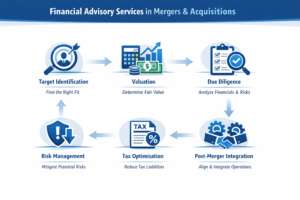The Central Board of Direct Taxes (CBDT) has specified certain IFSC (International Financial Services Center) units and specified payments on which tax is not required to be deducted at source as provided under the provisions of the Income Tax Act, 1961. As per this notification dated 20th June 2025, the following payments made by any person to these units will not be subject to TDS:
This notification shall come into effect from 1st July, 2025.
Cash belonging to Company found in Director’s possession – whether Section 2(22) can be invoked
Section 2(22) of the Income Tax Act, 1961 defines the meaning and scope of what sums can be termed as “dividend”. Further, 2(22) (e) defines when a sum can be treated and taxed as a deemed dividend in the hands of a person having substantial interest in a company. The same was under contention in the case of Dr. HM Venkatappa v. Deputy Commissioner of Income-Tax in ITAT Bangalore.
Facts of the case
- The assessee was a majority shareholder and director of a company KDSPL. On a search conducted on his premises as well as that of his auditor’s office, a combined total of Rs. 2.29 Crores was recovered in cash.
- The same was treated as deemed dividend and added to the income of the assessee by the AO. This was confirmed by the Commissioner (Appeals).
Conclusions
- The assessee claimed that the cash belonged to the company itself and he was acting merely as a custodian for the same, as backed by a board resolution. Further, there was no record of this sum being shown as a loan or advance in the books of the company which is a requirement as per the provisions of the section.
- The board resolution was proof that the assessee was acting in a fiduciary capacity and had not utilized the sums for personal benefits. Thus, the cash was considered to belong to the company itself and the additions made were deleted by the Tribunal.
Disallowance of Depreciation in absence of actual payment of cost
Section 32 of the Income Tax Act, 1961 provides for depreciation to be claimed as a deduction from business income to reduce tax liability. On the same lines, an assessee Petronet V K Ltd., who was engaged in the work of laying and operating petroleum pipelines, claimed depreciation in their return of income against the cost of the pipeline, which was subsequently disallowed by the AO.
Facts of the Case
- The assessee had shown a particular amount in the cost of the pipeline as ‘payable’ to two companies – KPT and GMB. On inquiry with these two companies, it was ascertained by the AO that these amounts were contingent liabilities, thus not forming a part of installation cost of pipeline. Thus, the depreciation with respect to these sums was disallowed.
- On appeal by the assessee, the order was upheld by the Commissioner (Appeals) and the Tribunal.
Conclusion
- On further appeal, the High Court of Gujarat upheld the earlier decisions and arrived at the conclusion that the amounts shown as payable to the companies were not a part of contractual cost and thus depreciation was rightfully disallowed.
Treatment of Life membership fee received from club members
Clubs often take certain amounts from its members for the purposes of admission and availing services/ benefits offered by the club. The treatment of such receipts as per the income tax law was under contention in the case of Chennai Corporate Club (P) Ltd vs. ACIT which was settled in the High Court of Madras.
Facts of the case
- The assessee contended that the lifetime membership fees which it had received from its members is to be capitalized and not taxed as revenue in its hands. It accepted and offered the monthly subscription fees separately received as income.
- The AO disagreed with the above and added the amount received as lifetime membership fees to the income of the assessee. This was upheld by the Commissioner (Appeals) and the Tribunal.
Conclusion
- The High Court first made a demarcation between the two kinds of receipts of the assessee. Firstly, the monthly subscription fees which was paid to avail services and amenities from the private club. This was offered by the assessee as revenue to be taxed and the department accepted the same.
- The second receipt was a one time, non-refundable and non-transferable membership fee to be paid by all members for access to the benefits of the club for which they paid a separate subscription fee. Following the decisions taken by the Bombay High Court in the case of PCIT vs. Royal Western India Turf Club Limited and in the case of CIT vs. Diners Business Services Pvt. Ltd., the sum paid to the assessee was treated as a capital receipt and the appeal was allowed.
Availability of Section 11 benefit with respect to commercial activities
Section 11 of the Income Tax Act provides for an exemption of income from tax if the same is derived from properties held under trust solely for charitable or religious purposes. The same was the point of disagreement in the case of Commissioner of Income Tax vs. Kutchi Sarvodaya Nagar settled in the High Court of Bombay.
Facts of the case
- The assessee, a trust, was formed solely for the purpose of construction of flats for its members. It had filed its return, along with relevant financial statements and audit report declaring nil income. However, it had received transfer fees from its members and also interest on investment which led the AO to believe that it was carrying out activities of a commercial nature. This meant that the exemption availed through the provisions of Section 11 would not stand.
- The Commissioner (Appeals) on a thorough examination of the facts found that there was no sale of houses in the open market and neither did a sale consideration exist. Even in the case of admission of new members the eligibility conditions were fulfilled and there was no transfer of asset. Thus, the trust was not found to be carrying out the activities of a commercial nature.
The Tribunal, on appeal, made a thorough examination of facts and upheld the decision taken by the Commissioner. The High Court observed that the decision of the Tribunal had been arrived at purely on the basis of facts and thus did not warrant any ambiguity or substantial question of law.





